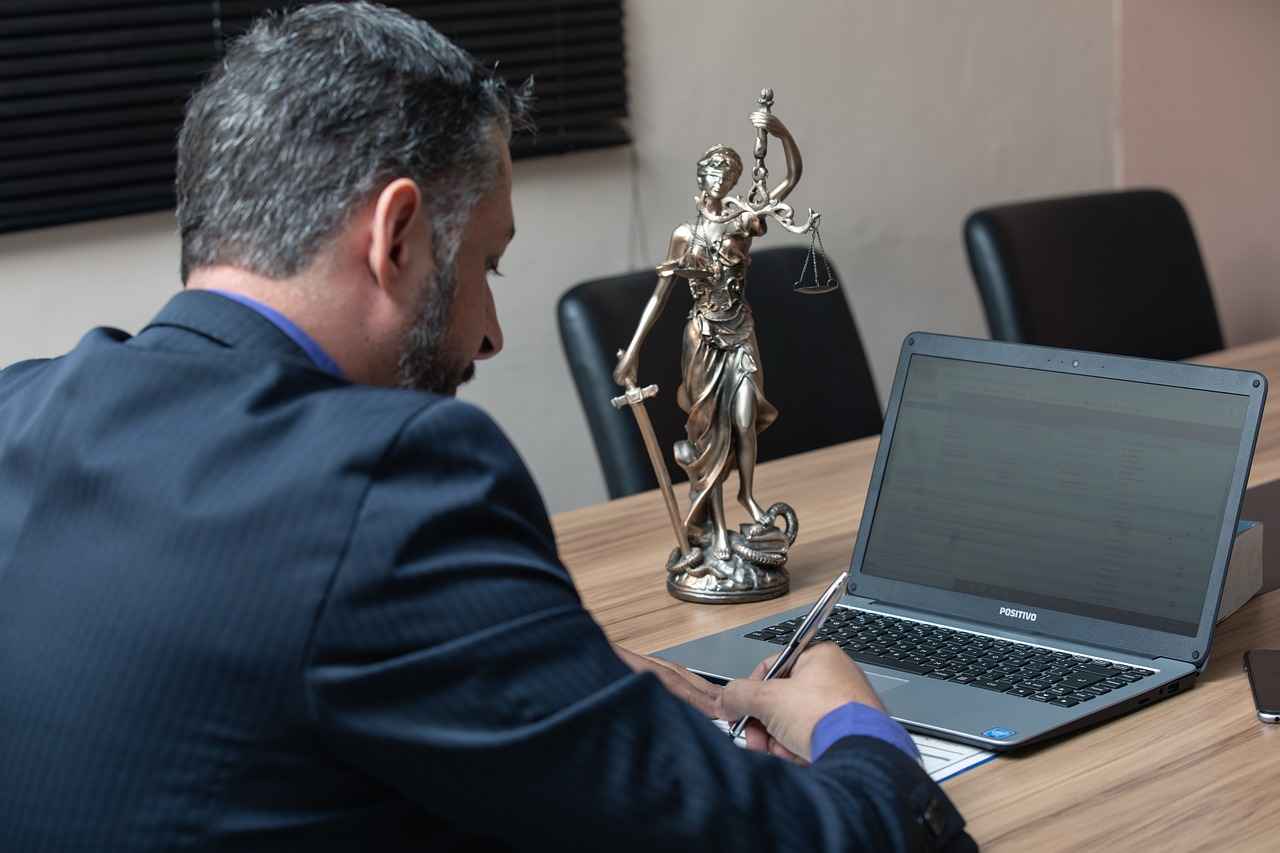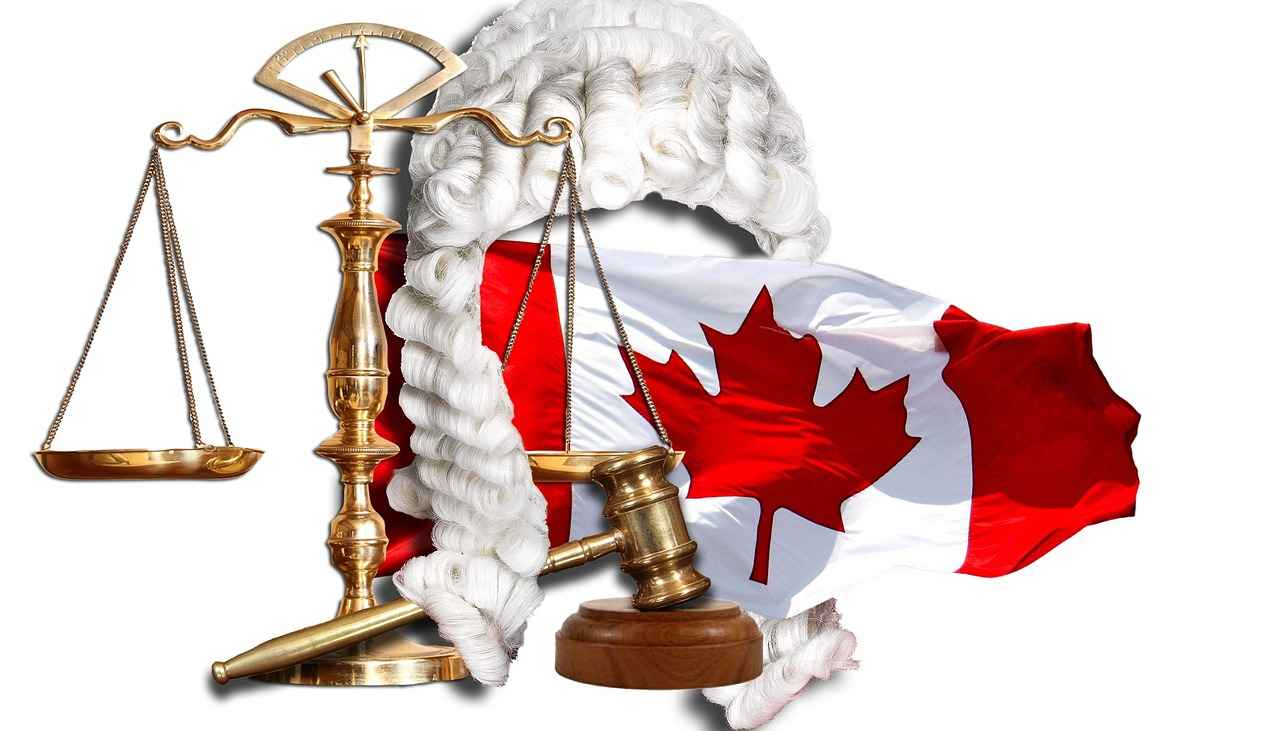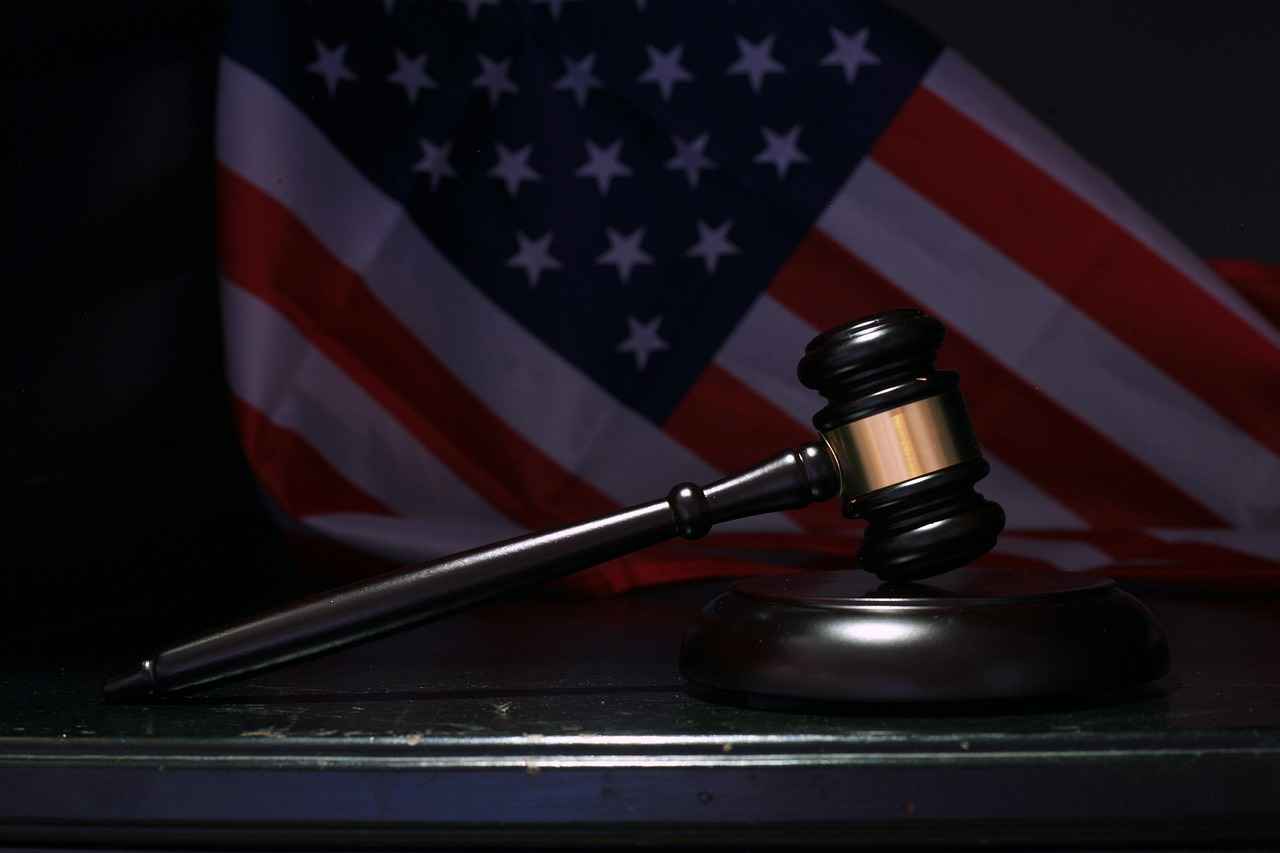This article explores the most common types of legal cases in the U.S. and provides expert guidance on finding qualified attorneys in Scottsdale, Arizona.
Understanding Personal Injury Cases
Personal injury cases are among the most prevalent legal issues in the U.S., often arising from negligence in various situations, such as car accidents, slips and falls, and workplace injuries. To find a qualified attorney in Scottsdale, it is essential to seek someone who specializes in personal injury law. Look for credentials such as board certification in personal injury law and a strong record of successful settlements or verdicts. Utilize online platforms like Avvo and FindLaw to read reviews and compare attorneys’ experience.
Navigating Medical Malpractice Claims
Medical malpractice claims are intricate and require specialized legal knowledge. Victims must prove that a healthcare professional’s negligence caused their injuries. When searching for a qualified attorney, consider their experience with medical malpractice cases and their familiarity with medical terminology. Look for attorneys who have a proven track record in similar cases and are willing to provide references. Websites like Super Lawyers can help identify top-rated attorneys in this field.
Dealing with Breach of Contract Issues
Breach of contract cases can occur in both personal and business contexts. To navigate these disputes effectively, find an attorney with experience in contract law. Check their previous case results and their understanding of relevant statutes. It’s beneficial to consult with attorneys who offer free initial consultations, allowing you to gauge their expertise without a financial commitment.
Resolving Property Disputes
Property disputes may involve ownership issues, boundary disputes, and zoning conflicts. When looking for an attorney to handle these matters, ensure they have extensive experience in real estate law. Look for attorneys who are members of the American Bar Association and have specialized certifications. Online legal directories can provide a wealth of information about local attorneys and their qualifications.
Landlord-Tenant Disputes Explained
Landlord-tenant disputes often arise over lease agreements and property conditions. Understanding tenant rights is crucial, and finding a knowledgeable attorney can aid in resolving these conflicts. Seek attorneys who specialize in landlord-tenant law and have a strong understanding of local housing regulations. Look for reviews from previous clients to assess their effectiveness in handling similar cases.
Understanding Defamation Law
Defamation cases, including libel and slander, can have serious implications for one’s reputation. To protect your rights, it’s vital to find a lawyer with experience in defamation law. Look for attorneys who have successfully handled similar cases and are familiar with the nuances of free speech laws. Check their publications and speaking engagements to evaluate their expertise in this area.
Employment Disputes and Workers’ Rights
Employment disputes can involve wrongful termination, discrimination, and wage issues. When searching for a competent attorney, consider their experience with employment law and their familiarity with state and federal labor regulations. Look for attorneys who offer free consultations and have a solid track record of representing employees successfully.
Product Liability Cases
Product liability cases hold manufacturers accountable for defective products. To find a qualified attorney, seek someone who specializes in personal injury and product liability. Assess their experience with similar cases and their ability to navigate complex legal and technical issues. Websites like Martindale-Hubbell can provide ratings and reviews of attorneys in this field.
Wrongful Death Lawsuits
Wrongful death lawsuits arise when negligence leads to a person’s untimely death. Finding a compassionate and experienced attorney is vital for navigating these emotionally charged cases. Look for attorneys who specialize in wrongful death claims and have a history of securing substantial settlements for their clients. Personal referrals can also be invaluable in this sensitive area of law.
Class Action Lawsuits Overview
Class action lawsuits allow groups of individuals to collectively sue for damages. To enhance the chances of a successful outcome, find a lawyer experienced in class actions. Research their past class action cases and their success rates. It’s essential to choose an attorney who understands the complexities of these lawsuits and can effectively represent the interests of all class members.
Criminal Defense: Assault and Battery Charges
Assault and battery charges can lead to severe legal consequences. Knowing how to find a skilled criminal defense attorney is essential for anyone facing these charges. Look for attorneys who specialize in criminal defense and have a strong track record of defending clients against similar charges. Personal referrals and online reviews can provide insights into their effectiveness and approach.
Navigating Drug Offenses and Legal Representation
Drug offenses vary widely and can have significant legal repercussions. Finding a knowledgeable attorney can help individuals navigate the complexities of drug-related charges. Seek attorneys who specialize in drug law and have experience with both state and federal cases. Ensure they are familiar with local laws and have a strong defense strategy.
Understanding Theft and Burglary Cases
Theft and burglary cases can result in serious criminal penalties. Seeking legal representation from an experienced attorney can help mitigate the consequences of these charges. Look for attorneys who specialize in criminal defense and have successfully handled theft and burglary cases in the past. Their experience can make a significant difference in the outcome of your case.

Understanding Personal Injury Cases
When it comes to the legal landscape in the United States, personal injury cases are among the most prevalent. These cases typically arise when an individual suffers harm due to the negligence or wrongful conduct of another party. Understanding the intricacies of personal injury law is crucial for anyone seeking to navigate this complex area effectively.
What Constitutes Negligence? Negligence occurs when a person fails to exercise the level of care that a reasonable person would in similar circumstances, leading to harm. Common examples include car accidents, slip and fall incidents, and medical malpractice. Victims of such incidents often face not only physical pain but also emotional distress and financial burdens due to medical bills and lost wages.
To ensure fair compensation for their injuries, individuals must know how to choose the right attorney specializing in personal injury law. Here are some essential tips:
- Look for Experience: Seek attorneys with a proven track record in personal injury cases. Experience can significantly impact the outcome of your case.
- Check Credentials: Verify that the attorney is licensed to practice in your state and is in good standing with the state bar association. Additional certifications in personal injury law can be beneficial.
- Read Reviews: Online reviews and testimonials can provide insight into an attorney’s reputation and success rate. Look for patterns in feedback, especially regarding communication and case management.
- Consultation: Most personal injury attorneys offer a free initial consultation. Use this opportunity to discuss your case and gauge the attorney’s understanding and approach to your situation.
- Contingency Fees: Many personal injury lawyers work on a contingency fee basis, meaning they only get paid if you win your case. Be sure to understand the fee structure and any additional costs that may arise.
Why Is It Important to Choose the Right Attorney? The right attorney can make a significant difference in the amount of compensation you receive. They will know how to gather evidence, negotiate with insurance companies, and present your case in court if necessary. A skilled attorney will also help you avoid common pitfalls, such as missing deadlines for filing claims or accepting inadequate settlement offers.
In summary, understanding personal injury cases and selecting the right attorney is crucial for anyone seeking justice and compensation for their injuries. By following the guidelines outlined above, individuals can empower themselves to make informed decisions and improve their chances of a favorable outcome.

Navigating Medical Malpractice Claims
Medical malpractice claims are among the most intricate types of legal cases due to the specialized knowledge required in both medicine and law. When a patient is harmed due to a healthcare provider’s negligence, the consequences can be devastating, making it essential to seek the right legal representation. Understanding how to find a qualified attorney can significantly impact the outcome of these sensitive cases.
What Constitutes Medical Malpractice?
Medical malpractice occurs when a healthcare professional fails to provide the standard of care expected in their field, resulting in injury or harm to a patient. This can include misdiagnosis, surgical errors, medication mistakes, and failure to inform patients of risks. The complexity of these cases often requires a deep understanding of both legal principles and medical practices.
How to Find a Qualified Medical Malpractice Attorney
- Research and Referrals: Start by asking for referrals from friends, family, or other attorneys. Personal experiences can lead you to trustworthy legal professionals.
- Check Credentials: Look for attorneys who specialize in medical malpractice and have a proven track record. Verify their education, experience, and any certifications.
- Consult Online Resources: Websites like Avvo, Martindale-Hubbell, and the American Bar Association can provide ratings and reviews of attorneys in your area.
- Initial Consultation: Many attorneys offer free consultations. Use this opportunity to ask about their experience with similar cases, strategies, and outcomes.
Evaluating Potential Attorneys
When evaluating potential attorneys, consider the following:
- Experience: Look for attorneys who have handled cases similar to yours. Experience in medical malpractice can be a significant advantage.
- Communication Skills: An attorney should be able to explain complex legal concepts in a way that is easy to understand. Good communication is key to a successful attorney-client relationship.
- Success Rate: Inquire about the attorney’s success rate in medical malpractice cases. A high success rate can indicate competence and effectiveness.
- Fee Structure: Understand the attorney’s fee structure. Many medical malpractice attorneys work on a contingency fee basis, meaning they only get paid if you win your case.
Red Flags to Avoid
While searching for a medical malpractice attorney, be aware of potential red flags:
- Lack of Specialization: Avoid attorneys who do not specialize in medical malpractice, as they may not have the necessary expertise.
- Pressure Tactics: Be cautious of attorneys who pressure you into signing contracts or making quick decisions. A trustworthy attorney will give you the time you need to make informed choices.
- Poor Communication: If an attorney is difficult to reach or does not communicate clearly, this could be a sign of future issues.
Understanding the Legal Process
The process of pursuing a medical malpractice claim typically involves several steps:
- Investigation: Your attorney will conduct a thorough investigation, gathering medical records and expert opinions to build your case.
- Filing a Claim: Once sufficient evidence is gathered, your attorney will file a formal complaint against the healthcare provider.
- Negotiation: Many cases are settled before going to trial. Your attorney will negotiate with the opposing party to reach a fair settlement.
- Trial: If a settlement cannot be reached, your case may go to trial, where your attorney will present evidence and argue your case before a judge or jury.
Conclusion
Navigating medical malpractice claims requires specialized legal knowledge and a thorough understanding of the healthcare system. By following the steps outlined above and being vigilant in your search for a qualified attorney, you can increase your chances of a successful outcome in your case. Remember, the right legal representation can make a significant difference in achieving justice and compensation for your injuries.

Dealing with Breach of Contract Issues
Breach of contract cases can arise in various contexts, from business agreements to personal contracts. These disputes occur when one party fails to fulfill their obligations as outlined in a legally binding agreement. The implications of a breach can be significant, leading to financial losses, strained relationships, and even legal action. Therefore, it is crucial to understand the intricacies of these cases and the importance of finding an experienced attorney to navigate them effectively.
When faced with a breach of contract, the first step is to assess the situation thoroughly. Determine whether the breach is material or minor, as this distinction can impact the available remedies. A material breach is a significant violation that undermines the contract’s purpose, while a minor breach may not affect the overall agreement. Understanding this difference can guide your next steps.
Finding the right attorney is essential for resolving breach of contract disputes. Here are some practical tips for locating a qualified lawyer:
- Specialization: Look for attorneys who specialize in contract law. Their expertise will be invaluable in understanding the nuances of your case.
- Experience: Consider attorneys with a proven track record in handling breach of contract cases. Their experience can offer insights into potential outcomes and strategies.
- Referrals: Seek recommendations from trusted sources, such as friends, family, or business associates who have dealt with similar issues.
- Online Resources: Utilize legal directories and platforms like Avvo or FindLaw to research potential attorneys, read reviews, and compare qualifications.
- Consultations: Schedule initial consultations with multiple attorneys to discuss your case. Pay attention to their communication style, understanding of your situation, and proposed strategies.
In addition to finding the right attorney, it’s essential to be aware of red flags during the hiring process. Avoid attorneys who:
- Promise guaranteed outcomes, as no attorney can predict the result of a legal case.
- Pressure you into making quick decisions without providing sufficient information.
- Have a history of disciplinary actions or complaints against them.
Understanding the potential remedies for a breach of contract is also critical. Remedies may include:
- Damages: Financial compensation for losses incurred due to the breach.
- Specific Performance: A court order requiring the breaching party to fulfill their contractual obligations.
- Rescission: Termination of the contract, releasing both parties from their obligations.
In conclusion, navigating breach of contract issues requires a strategic approach and the guidance of a qualified attorney. By understanding the nature of the breach, knowing what to look for in a lawyer, and being aware of potential remedies, individuals can take proactive steps to protect their interests and seek resolution.

Resolving Property Disputes
Property disputes are common legal issues that can arise in various forms, such as ownership conflicts, boundary disagreements, and zoning issues. These disputes can significantly impact property rights and the use of land, making it essential for individuals to understand how to navigate these complexities. In this section, we will discuss the types of property disputes, the importance of legal representation, and how to find a qualified attorney to assist you in resolving these matters.
Types of Property Disputes
- Ownership Issues: Disputes can arise when multiple parties claim ownership of the same property. This can happen due to inheritance issues, unclear titles, or fraudulent claims.
- Boundary Disputes: These disputes occur when neighbors disagree on the location of property lines. Such conflicts can lead to legal battles if not resolved amicably.
- Zoning Conflicts: Zoning laws regulate land use, and conflicts can arise when property owners wish to use their land in ways that are not permitted by local regulations.
The Importance of Legal Representation
Engaging a skilled attorney is crucial when facing property disputes. An experienced lawyer can provide invaluable guidance on the legal aspects of your case, help you understand your rights, and represent your interests in negotiations or court proceedings. They can also assist in gathering necessary documentation, such as property deeds, surveys, and zoning laws, to strengthen your case.
How to Find a Qualified Attorney
Finding the right attorney for your property dispute involves several steps:
- Research: Start by researching local attorneys who specialize in property law. Websites like Avvo and FindLaw offer directories of legal professionals along with client reviews.
- Check Credentials: Look for attorneys with specific experience in property disputes. Verify their education, professional affiliations, and track record in handling similar cases.
- Consultation: Schedule initial consultations with potential attorneys. This meeting is an opportunity to discuss your case and determine if the attorney’s approach aligns with your needs.
- Ask Questions: During the consultation, ask about their experience with property disputes, their strategy for your case, and their fee structure. A good attorney should be transparent about costs and provide clear answers.
- Trust Your Instincts: Choose an attorney you feel comfortable with and who demonstrates a genuine interest in your case. Trust is essential in the attorney-client relationship.
Red Flags to Avoid
While searching for an attorney, be aware of potential red flags:
- Unclear Fee Structures: Be cautious of attorneys who are vague about their fees or who pressure you into signing a contract without explaining the terms.
- Lack of Experience: Avoid attorneys who do not have a proven track record in property disputes, as they may not be equipped to handle the complexities of your case.
- Poor Communication: If an attorney is unresponsive or fails to communicate effectively during initial consultations, it may indicate future challenges in your working relationship.
In conclusion, resolving property disputes requires a thorough understanding of the legal landscape and the right representation. By following these guidelines, you can find a qualified attorney who will advocate for your property rights and help you navigate the complexities of your case effectively.

Landlord-Tenant Disputes Explained
Landlord-tenant disputes are a common occurrence in the rental market, often stemming from misunderstandings or disagreements over lease agreements and property conditions. These disputes can lead to significant stress and financial strain for both parties involved. Understanding tenant rights and knowing how to find a knowledgeable attorney can help resolve these conflicts efficiently and effectively.
What Are Common Causes of Landlord-Tenant Disputes?
- Lease Agreement Violations: Disputes often arise when one party believes the other has violated the terms of the lease. This can include issues such as late rent payments, unauthorized tenants, or failure to maintain the property.
- Property Conditions: Tenants may claim that the property is not being maintained properly, leading to health and safety concerns. This can result in disputes over repair responsibilities and living conditions.
- Security Deposits: Disagreements over the return of security deposits are common. Landlords may withhold deposits for perceived damages, while tenants argue for their return.
- Evictions: Eviction proceedings can lead to disputes, especially if tenants believe they are being unfairly evicted or if proper legal procedures were not followed.
Understanding Tenant Rights
Tenants have specific rights that protect them under state and federal laws. These rights can include:
- Right to a habitable living environment, free from significant health hazards.
- Right to privacy, meaning landlords must provide notice before entering the rental unit.
- Protection against retaliatory eviction for exercising their legal rights.
- Right to a fair process in eviction proceedings, including proper notice and court hearings.
How to Find a Knowledgeable Attorney for Landlord-Tenant Disputes
Finding the right attorney to handle landlord-tenant disputes is crucial for achieving a favorable outcome. Here are some steps to consider:
- Research Local Attorneys: Start by searching for attorneys in your area who specialize in landlord-tenant law. Websites like Avvo and Nolo can provide listings and reviews.
- Check Credentials: Look for attorneys with experience in landlord-tenant disputes, preferably with a track record of successful cases. Verify their credentials through state bar associations.
- Schedule Consultations: Many attorneys offer free initial consultations. Use this opportunity to discuss your case and gauge their understanding of landlord-tenant law.
- Ask About Fees: Understand the attorney’s fee structure upfront. Some may charge hourly rates, while others might work on a contingency basis.
- Read Reviews: Look for client testimonials and reviews online to get a sense of the attorney’s reputation and effectiveness.
Red Flags to Avoid
- Attorneys who lack experience in landlord-tenant law.
- Those who do not provide clear communication about fees and services.
- Lawyers who pressure you into signing contracts without fully explaining terms.
In conclusion, understanding the nuances of landlord-tenant disputes and knowing how to navigate the legal landscape can significantly impact the resolution of these conflicts. By being informed about tenant rights and following the steps to find a qualified attorney, individuals can ensure they are well-equipped to handle any disputes that may arise.

Understanding Defamation Law
Defamation law is a critical area of legal practice that addresses the protection of personal and professional reputations. Defamation can take two primary forms: libel, which refers to written statements, and slander, which pertains to spoken words. Both forms can have devastating effects on an individual’s personal and professional life, leading to loss of employment, social standing, and emotional distress. Therefore, understanding the nuances of defamation law is essential for anyone who believes they have been wronged.
In the context of defamation, the burden of proof typically lies with the plaintiff, who must demonstrate that the statement in question was false, damaging, and made with a certain degree of fault. This fault can range from negligence to actual malice, depending on the status of the plaintiff (public figure vs. private individual). For those pursuing a defamation claim, it is crucial to gather all relevant evidence, including witnesses, documents, and recordings, to substantiate their case.
Finding a lawyer who specializes in defamation law is a vital step in navigating these complex cases. Here are some practical tips on how to find qualified legal representation:
- Research Online: Utilize legal directories like Avvo, FindLaw, or Martindale-Hubbell, which provide listings of attorneys along with ratings and reviews. This can help you identify lawyers who specialize in defamation cases.
- Check Credentials: Look for attorneys with specific experience in defamation law and a proven track record. Credentials such as membership in the American Bar Association or local bar associations can indicate professionalism and adherence to ethical standards.
- Seek Referrals: Ask friends, family, or colleagues for recommendations. Personal referrals can provide insights into the attorney’s style, effectiveness, and approach to cases.
- Consult Initial Meetings: Many attorneys offer free consultations. Use this opportunity to discuss your case and gauge the attorney’s understanding of defamation law.
- Assess Communication Skills: Effective communication is vital in legal matters. Choose an attorney who listens to your concerns and explains complex legal terms in understandable language.
When evaluating potential lawyers, be aware of red flags that may indicate a lack of suitability:
- Lack of Experience: Avoid attorneys who do not have specific experience in defamation law, as this area requires specialized knowledge.
- Unclear Fee Structures: Be cautious of lawyers who cannot clearly explain their fee structures or who demand large upfront payments without a clear understanding of your case.
- Poor Communication: If an attorney is unresponsive or fails to communicate effectively during initial consultations, it may be indicative of future issues.
In summary, defamation cases can have serious implications for individuals and their reputations. Finding a qualified lawyer who specializes in this area is essential for protecting your rights. By conducting thorough research, checking credentials, seeking referrals, and being attentive to red flags, individuals can enhance their chances of finding the right legal representation to navigate the complexities of defamation law.

Employment Disputes and Workers’ Rights
Employment disputes are a significant concern for many workers across the United States. They can manifest in various forms, including wrongful termination, discrimination, and wage issues. Understanding these disputes is crucial for employees who wish to assert their rights and seek justice. In this section, we will explore these issues in detail and provide guidance on how to find a competent attorney to help navigate these challenging situations.
Wrongful termination occurs when an employee is fired for illegal reasons, such as retaliation for whistleblowing or discrimination based on race, gender, or disability. It is vital for employees to recognize their rights in such cases and to document any relevant incidents that may support their claims. Seeking an attorney who specializes in employment law can make a significant difference in the outcome of these cases.
Discrimination in the workplace can take many forms, including unequal pay, harassment, and unfair treatment based on protected characteristics. Employees facing discrimination should keep detailed records of incidents and seek legal advice promptly. A qualified attorney can help assess the situation, provide guidance on filing complaints with the Equal Employment Opportunity Commission (EEOC), and represent employees in court if necessary.
Wage issues, such as unpaid overtime or minimum wage violations, are also common in employment disputes. Employees should familiarize themselves with the Fair Labor Standards Act (FLSA) and consult an attorney if they suspect their employer is not complying with wage laws. An experienced attorney can help recover lost wages and ensure fair treatment under the law.
When searching for a competent attorney to handle employment disputes, individuals should consider several factors:
- Experience: Look for attorneys who specialize in employment law and have a proven track record of handling similar cases.
- Reputation: Research online reviews, testimonials, and ratings from previous clients to gauge the attorney’s credibility.
- Consultation: Many attorneys offer free initial consultations. Take advantage of this opportunity to discuss your case and assess the attorney’s approach.
- Credentials: Verify the attorney’s qualifications, including their education, bar admissions, and any relevant certifications.
- Communication: Choose an attorney who communicates clearly and makes you feel comfortable discussing your case.
Red flags to avoid include:
- Attorneys who promise guaranteed outcomes.
- Those who are unresponsive or difficult to reach.
- Lawyers who lack relevant experience in employment law.
In conclusion, employment disputes can be complex and emotionally draining. Knowing your rights and finding a competent attorney can significantly impact the outcome of your case. Whether you are dealing with wrongful termination, discrimination, or wage issues, seeking legal guidance is essential in asserting your rights and achieving justice.

Product Liability Cases
are critical in holding manufacturers accountable for defective products that cause harm to consumers. These cases can arise from various issues, including design flaws, manufacturing defects, or inadequate warnings about potential risks. When a product fails and leads to injuries, the affected individuals may seek compensation for their pain, suffering, and medical expenses. Understanding how to navigate these complex legal waters is essential for victims seeking justice.
In the United States, product liability law varies by state, making it crucial for victims to find a qualified attorney who specializes in this area. A skilled attorney will have a deep understanding of both state and federal laws governing product liability, as well as experience in handling similar cases. Here are some practical steps to help individuals find the right legal representation:
- Research and Referrals: Start by asking friends, family, or colleagues for recommendations. Personal referrals can provide valuable insights into an attorney’s track record and approach.
- Online Reviews and Ratings: Utilize platforms such as Avvo, Martindale-Hubbell, and Yelp to read reviews and ratings of attorneys. Look for those who have specific experience in product liability cases.
- Consultation Meetings: Schedule initial consultations with potential attorneys. Many offer free consultations, allowing you to discuss your case and evaluate their expertise. Pay attention to their communication style and willingness to answer your questions.
- Check Credentials: Verify the attorney’s credentials, including their education, bar association membership, and any special certifications in personal injury or product liability law. Membership in professional organizations, like the American Association for Justice, can also indicate a commitment to the field.
- Assess Experience: Inquire about their experience with product liability cases specifically. Ask about past case outcomes and their strategy in handling such claims.
- Evaluate Fees: Understand the attorney’s fee structure. Many personal injury attorneys work on a contingency fee basis, meaning they only get paid if you win your case. Ensure you are clear on any potential costs involved.
Finding a qualified attorney is crucial, especially when dealing with the complexities of product liability. Look for red flags, such as attorneys who make unrealistic promises or pressure you to sign contracts quickly. A reputable lawyer will provide a clear outline of the process and what to expect.
Additionally, it’s essential to document all evidence related to the product and your injuries. This can include photographs, medical records, and receipts. A knowledgeable attorney will guide you on the necessary documentation to strengthen your case.
In summary, product liability cases are a vital aspect of consumer protection law. By following these steps and finding a qualified attorney, victims can increase their chances of receiving fair compensation for their injuries. Remember, the right legal representation can make a significant difference in the outcome of your case.

Wrongful Death Lawsuits
are a significant area of law that addresses the tragic loss of life due to another party’s negligence or wrongful act. These cases not only seek to provide justice for the deceased but also aim to compensate the surviving family members for their profound loss. Understanding the intricacies of wrongful death lawsuits is crucial for anyone navigating this emotionally charged landscape.
In essence, a wrongful death claim can arise from various situations, including automobile accidents, medical malpractice, workplace accidents, or defective products. Each case is unique, requiring different legal strategies and an experienced attorney’s insight to achieve a successful outcome.
Finding the Right Attorney
When pursuing a wrongful death claim, finding a compassionate and experienced attorney is vital. Here are some steps to help you identify the best legal representation:
- Seek Specialization: Look for attorneys who specialize in wrongful death cases. Their expertise in this specific area of law will ensure they are familiar with the nuances involved.
- Check Credentials: Verify the attorney’s credentials, including their education, bar association memberships, and any relevant certifications. A well-qualified attorney will typically have a solid track record of handling similar cases.
- Read Reviews: Online reviews and testimonials can provide insight into an attorney’s reputation and success rate. Consider platforms like Avvo or Martindale-Hubbell for reliable ratings.
- Consultation Meetings: Schedule initial consultations with potential attorneys. This meeting allows you to gauge their empathy, communication style, and understanding of your specific situation.
- Discuss Fees: Understand the attorney’s fee structure upfront. Many wrongful death attorneys work on a contingency fee basis, meaning they only get paid if you win the case. Ensure you are clear about any potential costs involved.
Red Flags to Avoid
While searching for the right attorney, be cautious of certain red flags:
- Lack of Experience: Avoid attorneys who do not have a proven track record in handling wrongful death cases.
- Pressure Tactics: Be wary of attorneys who pressure you into signing contracts or making quick decisions. A trustworthy attorney will allow you the time needed to make informed choices.
- Unclear Communication: If an attorney fails to communicate clearly during initial consultations, it may indicate future issues in your case.
In wrongful death cases, the emotional toll on families can be overwhelming. The legal process can add to that stress, making it essential to have a knowledgeable attorney by your side. A skilled lawyer will not only advocate for your rights but also help you navigate the complexities of the legal system, allowing you to focus on healing and remembrance.
As you embark on this challenging journey, remember that you are seeking justice not only for the deceased but also for the future of your family. A qualified attorney will work diligently to ensure that the responsible party is held accountable and that you receive the compensation necessary to support your family during this difficult time.

Class Action Lawsuits Overview
Class action lawsuits are a powerful legal tool that allows a group of individuals to collectively seek justice against a common defendant, often for similar grievances. These lawsuits can cover a range of issues, including consumer fraud, product defects, and environmental damages. The collective nature of class actions can enhance the chances of achieving a favorable outcome, as they consolidate resources and legal expertise, making it more feasible to tackle large corporations or entities that may otherwise be difficult to challenge individually.
When considering a class action lawsuit, it is essential to find a lawyer who has extensive experience in this specialized area of law. Here are some key steps to help you identify the right attorney:
- Research Specialized Law Firms: Look for law firms that specialize in class action lawsuits. These firms often have a track record of successful cases and a deep understanding of the legal nuances involved.
- Check Credentials: Verify the attorney’s credentials, including their education, years of experience, and any relevant certifications. Membership in professional organizations, such as the American Association for Justice, can also indicate a commitment to this area of law.
- Review Past Cases: Investigate the attorney’s history with class action cases. Look for significant settlements or verdicts and consider how their experience aligns with your specific situation.
- Consult Initial Meetings: Many attorneys offer free consultations. Use this opportunity to discuss your case and gauge the attorney’s understanding and approach to class action lawsuits.
- Assess Communication: A good attorney should communicate clearly and effectively. Pay attention to how they explain legal concepts and their willingness to answer your questions.
- Evaluate Legal Fees: Understand the fee structure. Class action lawyers often work on a contingency fee basis, meaning they only get paid if you win. Ensure you are clear on how fees will be calculated.
- Seek Recommendations: Personal referrals from friends, family, or colleagues can be invaluable. Additionally, online reviews and testimonials can provide insight into an attorney’s reputation.
In major metropolitan areas like New York City, Los Angeles, and Chicago, the competition among attorneys can be fierce. Therefore, it is crucial to conduct thorough research and due diligence to identify the most qualified legal representation. Look for attorneys who have a proven track record in class actions similar to your case, as this can significantly impact the outcome.
Furthermore, understanding the class action process is essential. This includes knowing how to properly file a claim, the timeline for proceedings, and the potential outcomes. Your attorney should guide you through each step, ensuring that you are informed and prepared.
Class action lawsuits can be lengthy and complex, often taking years to resolve. Therefore, having a dedicated and experienced attorney by your side can make a significant difference. They will not only provide legal expertise but also offer emotional support throughout the process.
In summary, finding the right lawyer for a class action lawsuit involves careful research and consideration. By focusing on specialized law firms, checking credentials, and evaluating past case successes, you can enhance your chances of a successful outcome in your legal pursuit.

Criminal Defense: Assault and Battery Charges
When facing assault and battery charges, individuals must understand the gravity of the situation. These charges can lead to severe legal consequences, including hefty fines, imprisonment, and a criminal record that can affect various aspects of life, such as employment opportunities and personal relationships. Therefore, knowing how to find a skilled criminal defense attorney is essential for anyone navigating this challenging legal landscape.
To begin the search for a qualified attorney, consider the following steps:
- Research Local Attorneys: Start by conducting thorough research on attorneys in your area who specialize in criminal defense. Websites like Avvo and FindLaw provide directories of lawyers along with client reviews and ratings.
- Evaluate Experience: Look for attorneys with a proven track record in handling assault and battery cases. Experience in the local court system can be a significant advantage, as these attorneys will be familiar with the judges and prosecutors involved.
- Check Credentials: Verify the attorney’s credentials, including their education, bar admissions, and any specialized certifications in criminal law. Membership in professional organizations, such as the National Association of Criminal Defense Lawyers, can also indicate a commitment to the field.
- Consultation: Schedule consultations with potential attorneys. Many offer free initial consultations, allowing you to discuss your case and gauge their approach. Use this opportunity to ask about their experience with similar cases and their strategy for defense.
- Assess Communication: Choose an attorney who communicates clearly and promptly. It’s crucial to have a lawyer who keeps you informed and is approachable when you have questions or concerns.
- Consider Costs: Discuss fees upfront. Some attorneys charge hourly rates, while others may work on a flat fee basis. Ensure you understand the payment structure and any potential additional costs that may arise during the legal process.
In addition to these steps, be aware of red flags that may indicate a less-than-reputable attorney:
- Unclear fee structures or hidden costs.
- Pressure to sign contracts or make decisions quickly.
- Lack of experience with assault and battery cases specifically.
- Poor communication or unprofessional behavior during initial consultations.
It is vital to act quickly when facing assault and battery charges. The sooner you engage a qualified attorney, the better your chances of navigating the legal system effectively and achieving a favorable outcome. Remember, the right legal representation can make a significant difference in the resolution of your case.

Navigating Drug Offenses and Legal Representation
Drug offenses encompass a wide range of activities, from possession of controlled substances to trafficking and distribution. These charges can carry severe legal consequences, including hefty fines and lengthy prison sentences. The legal landscape surrounding drug offenses is complex and varies significantly by jurisdiction, making it crucial for individuals facing such charges to seek competent legal representation. An experienced attorney can provide invaluable assistance in navigating the intricacies of drug-related laws and procedures.
When searching for a lawyer to handle drug offense cases, individuals should consider several key factors:
- Experience in Drug Law: It is essential to find an attorney with a proven track record in handling drug-related cases. Look for someone who specializes in criminal defense and has specific experience with drug offenses.
- Knowledge of Local Laws: Drug laws can differ significantly from one state or municipality to another. An attorney well-versed in local statutes and regulations can better navigate the legal landscape on your behalf.
- Reputation and Reviews: Research potential attorneys by reading client reviews and testimonials. A lawyer with a strong reputation in the community can often provide better representation.
- Communication Skills: Effective communication is crucial in legal matters. Choose an attorney who can explain complex legal concepts in a way that is easy to understand and who keeps clients informed throughout the process.
- Fees and Payment Plans: Understanding the attorney’s fee structure upfront is vital. Some attorneys may offer flexible payment options or work on a contingency basis, especially in cases involving potential restitution.
Additionally, individuals should be aware of red flags when selecting a legal representative:
- Lack of Transparency: If an attorney is unwilling to provide clear information about their fees or the legal process, it may be a sign to look elsewhere.
- High Pressure Tactics: Beware of lawyers who pressure you into making quick decisions. A reputable attorney will give you time to consider your options.
- Limited Experience: Avoid attorneys who do not specialize in criminal law or who have little experience with drug offenses specifically.
In major metropolitan areas like New York City, Los Angeles, and Chicago, individuals have access to a wide array of legal resources. Online platforms such as Avvo, FindLaw, and Justia can help individuals compare attorneys based on their specialization, client reviews, and success rates. Many law firms also offer free consultations, allowing potential clients to gauge whether an attorney is a good fit for their needs.
In conclusion, navigating drug offenses requires not only an understanding of the law but also the right legal representation. By taking the time to research and choose a qualified attorney, individuals can significantly improve their chances of achieving a favorable outcome. With the right guidance, it is possible to navigate the complexities of drug-related charges effectively.

Understanding Theft and Burglary Cases
Theft and burglary cases are serious offenses that can lead to significant criminal penalties, including hefty fines and imprisonment. Understanding the nuances of these charges is crucial for anyone facing such allegations. Theft generally refers to the unlawful taking of someone else’s property with the intent to permanently deprive them of it. In contrast, burglary involves entering a building or structure unlawfully with the intent to commit a crime, typically theft, once inside.
When navigating these complex legal waters, seeking legal representation from an experienced attorney is paramount. A knowledgeable lawyer can provide invaluable assistance in mitigating the consequences of these charges. They can analyze the specifics of the case, identify any potential defenses, and represent the accused in court. It’s essential to select an attorney who specializes in criminal defense, particularly in theft and burglary cases, as they will have a deeper understanding of the applicable laws and local court procedures.
In major metropolitan areas like New York City, Los Angeles, and Chicago, the legal landscape can be particularly competitive. Therefore, individuals should consider the following steps to find the best attorney:
- Research and Referrals: Start by asking friends, family, or colleagues for recommendations. Online platforms like Avvo and FindLaw also provide directories of attorneys along with client reviews.
- Check Credentials: Look for attorneys who are members of professional organizations such as the National Association of Criminal Defense Lawyers (NACDL) or local bar associations. This indicates a commitment to ongoing education and professional standards.
- Schedule Consultations: Many attorneys offer free initial consultations. Use this opportunity to discuss your case, evaluate the attorney’s communication style, and gauge their understanding of the law.
- Assess Experience: Inquire about the attorney’s experience with theft and burglary cases specifically. Ask about their track record in court and their approach to defense strategies.
- Understand Fees: Discuss the attorney’s fee structure upfront. Some may charge a flat fee, while others may work on an hourly basis. Ensure you understand any additional costs that may arise during the process.
When evaluating potential attorneys, be aware of red flags that may indicate a lack of professionalism or expertise:
- Unclear fee structures or unexpected charges.
- Lack of responsiveness to inquiries or questions.
- Negative reviews or a history of disciplinary actions.
- Overpromising results or guarantees of outcomes.
Ultimately, the goal is to find a legal professional who not only understands the intricacies of theft and burglary laws but also demonstrates a genuine commitment to defending your rights. Taking the time to find the right attorney can significantly impact the outcome of your case, potentially reducing penalties or leading to a favorable resolution.
Frequently Asked Questions
- What should I look for in a personal injury attorney?
When searching for a personal injury attorney, consider their experience, track record with similar cases, and client reviews. A good attorney should also offer a free consultation to discuss your case without any obligation.
- How do I know if I have a valid medical malpractice claim?
To determine if you have a valid medical malpractice claim, you need to prove that the healthcare provider’s negligence caused your injury. Consulting with a specialized attorney can help clarify your situation and guide you through the legal process.
- What are my rights as a tenant in a landlord-tenant dispute?
As a tenant, you have rights that protect you from unfair treatment, such as the right to a safe living environment and the right to privacy. If you face issues, it’s essential to consult with an attorney who can help you understand and assert your rights.
- How can I find a qualified attorney for a class action lawsuit?
Finding a qualified attorney for a class action lawsuit involves looking for lawyers with specific experience in class actions. Check their success rates and seek recommendations from others who have participated in similar lawsuits.
- What should I do if I’m facing criminal charges?
If you’re facing criminal charges, the first step is to contact a skilled criminal defense attorney. They will help you understand your rights, navigate the legal system, and develop a defense strategy tailored to your situation.














